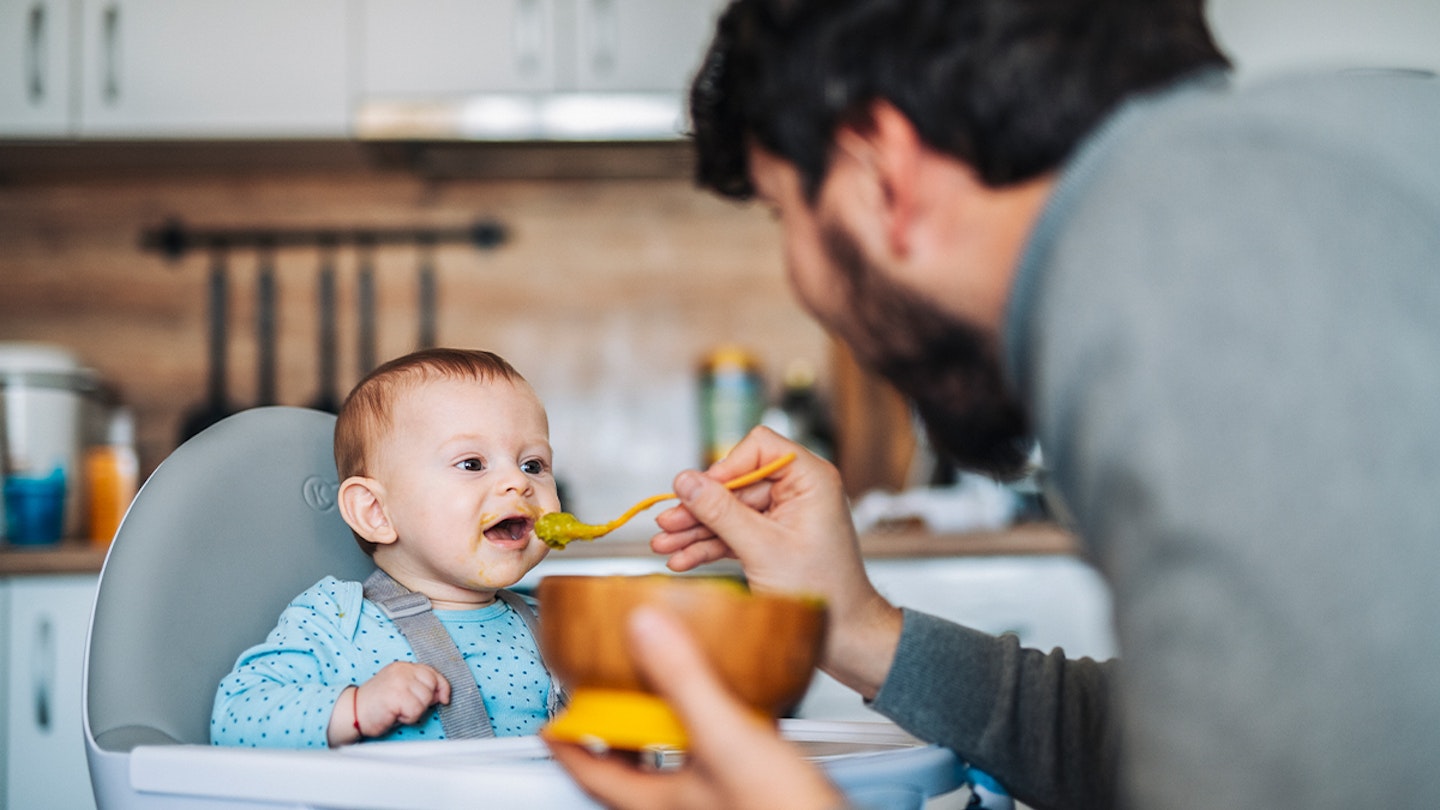If you’ve mastered the ‘first tastes’ stage of the baby weaning process and are ready to move on from baby rice, it’s time to start combining different food flavours to tempt your baby’s tastebuds with a variety of baby puree combinations.
It can be hard to know where to start with homemade baby food, and baby puree combinations won't be for everyone. For example, if you're trying baby-led weaning, finger foods might be better suited. However, if you're trying spoon-fed weaning, purees are an excellent idea.
To find the easiest baby puree combinations for you to try at home, we caught up with Fiona Wilcock, author of Feeding Your Baby Day By Day, to share some of her best recipes.
12 easy baby puree combinations
Carrot and butternut squash
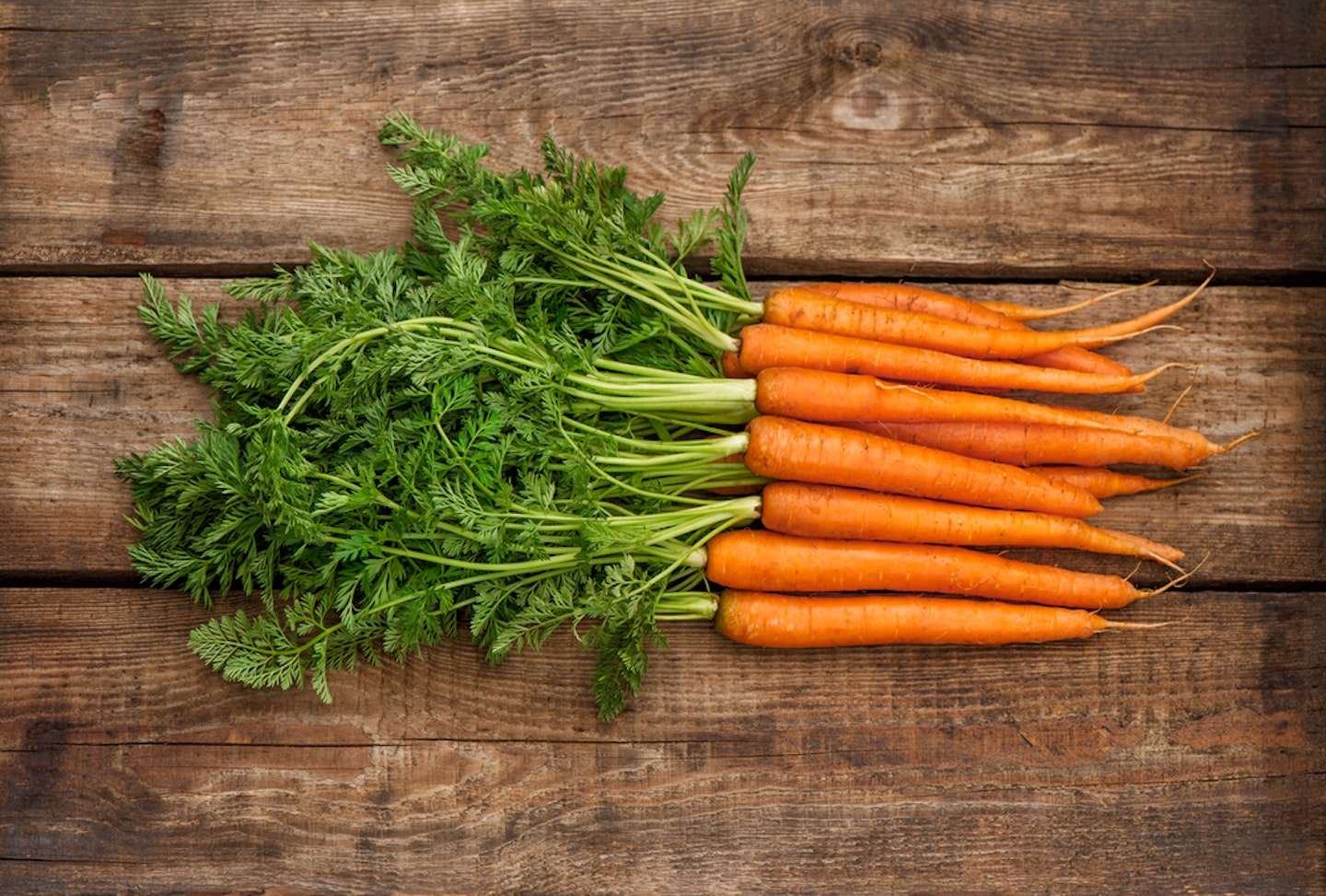
These autumn flavours are rich in vitamin A. Use frozen or prepared squash if you’re not using the whole squash.
Recipe: To make a puree, steam 60g peeled, chopped carrots and 100g peeled, cubed butternut squash for 8 minutes or until just tender. Cool slightly then puree with 1 tbsp vegetable oil, adding your baby’s milk, if needed.
Sweet potato and cauliflower
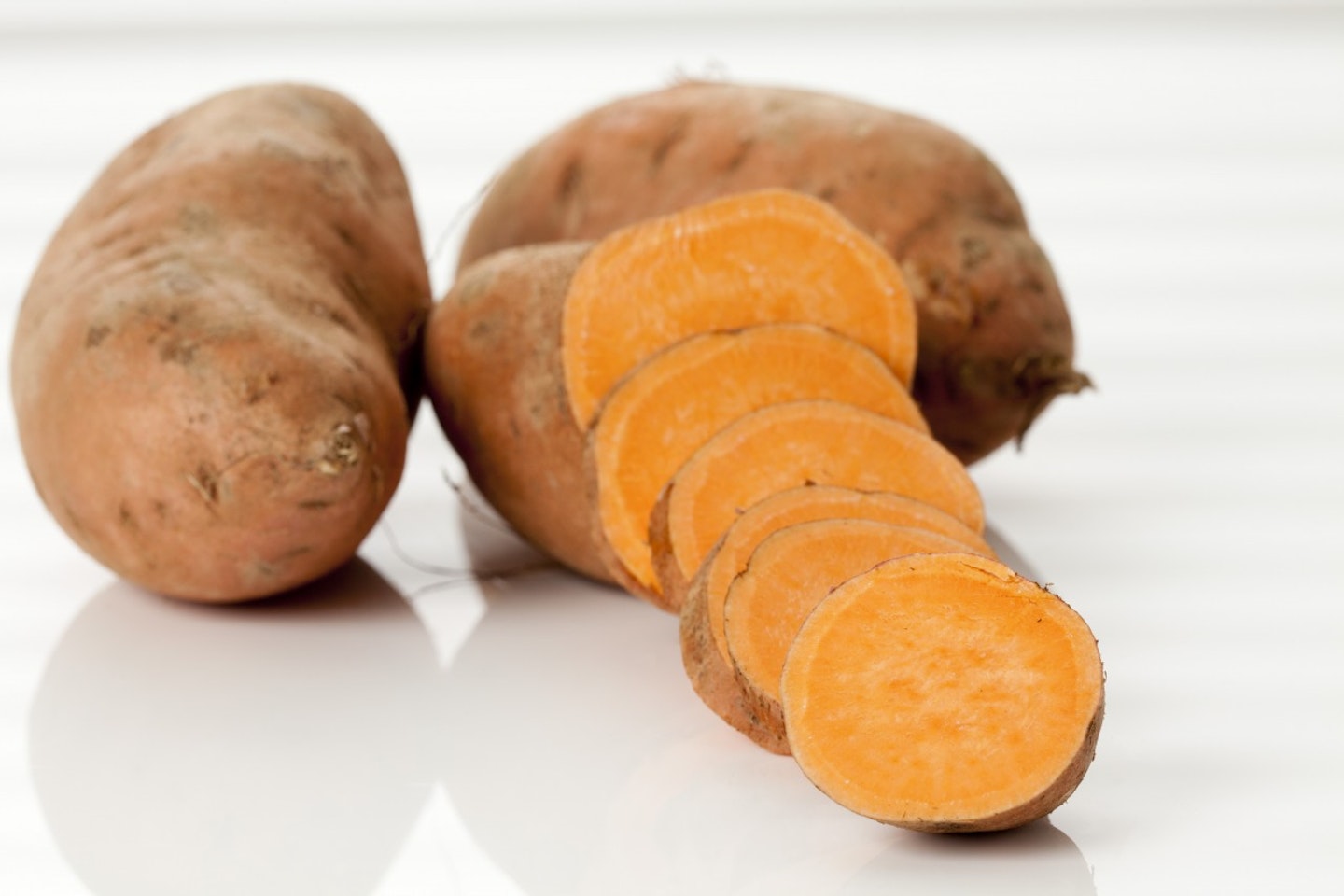
With vitamin C and folate, cauliflower pairs well with vitamin A-rich sweet potato.
Recipe: To make a puree, steam 150g peeled, diced sweet potato and 70g cauliflower florets for 8 minutes or until tender. Cool slightly, then blend with 1 tbsp of vegetable oil and your baby’s milk to make a thick puree.
Leek and carrot
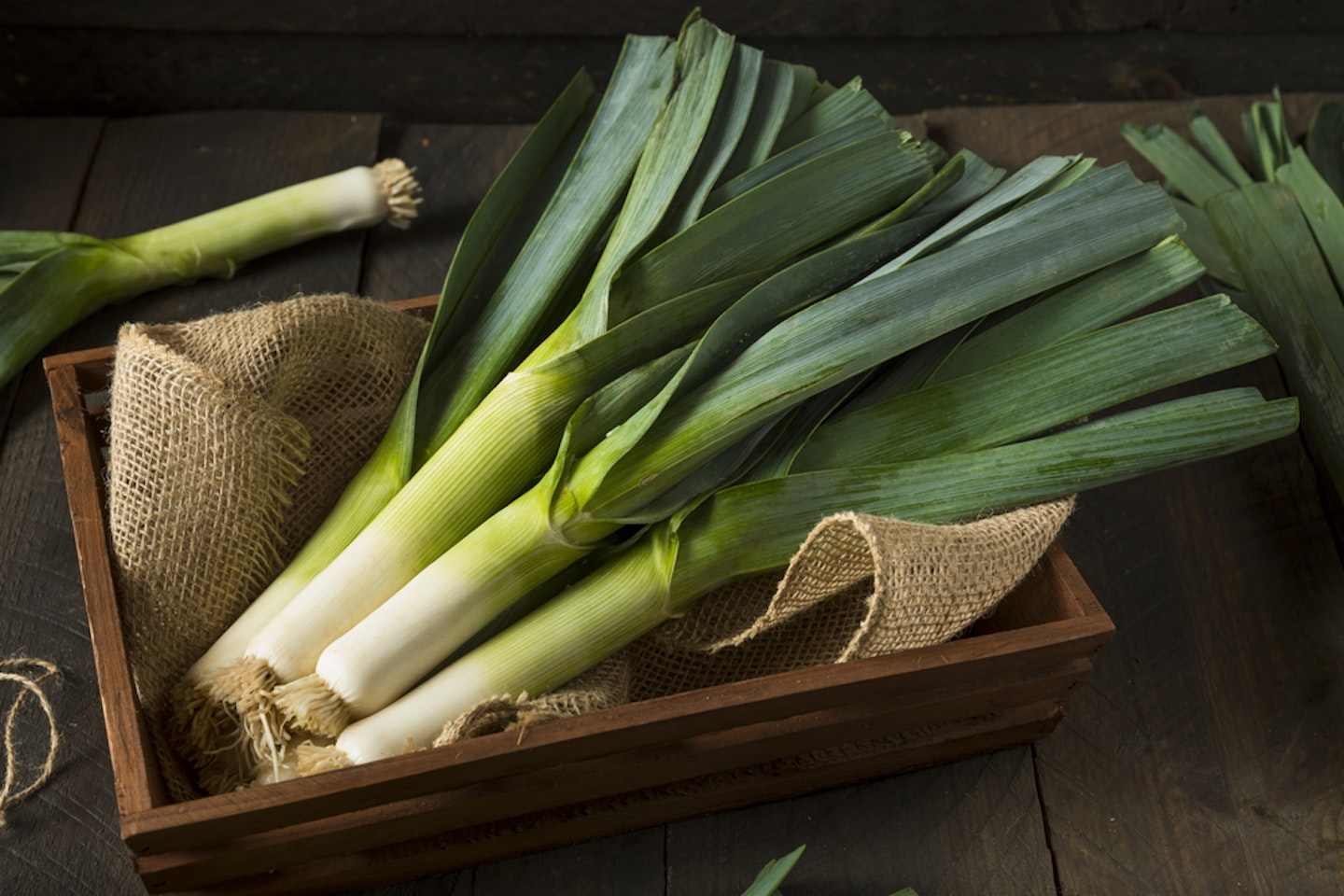
These simple flavours are enhanced by gently frying the leek. The carrots are a cheap source of essential vitamin A.
Recipe: To make a puree, slice 8cm of leek into small circle and fry in a little oil. Add 100g of peeled, chopped carrots and 100ml of water and cover, simmering until the carrots are soft. Meanwhile boil 120g of potatoes until tender and press through a ricer into a clean bowl. Puree the carrots and leeks and stir in the mashed potato, adding milk if you need to adjust the texture.
Courgette and tomato
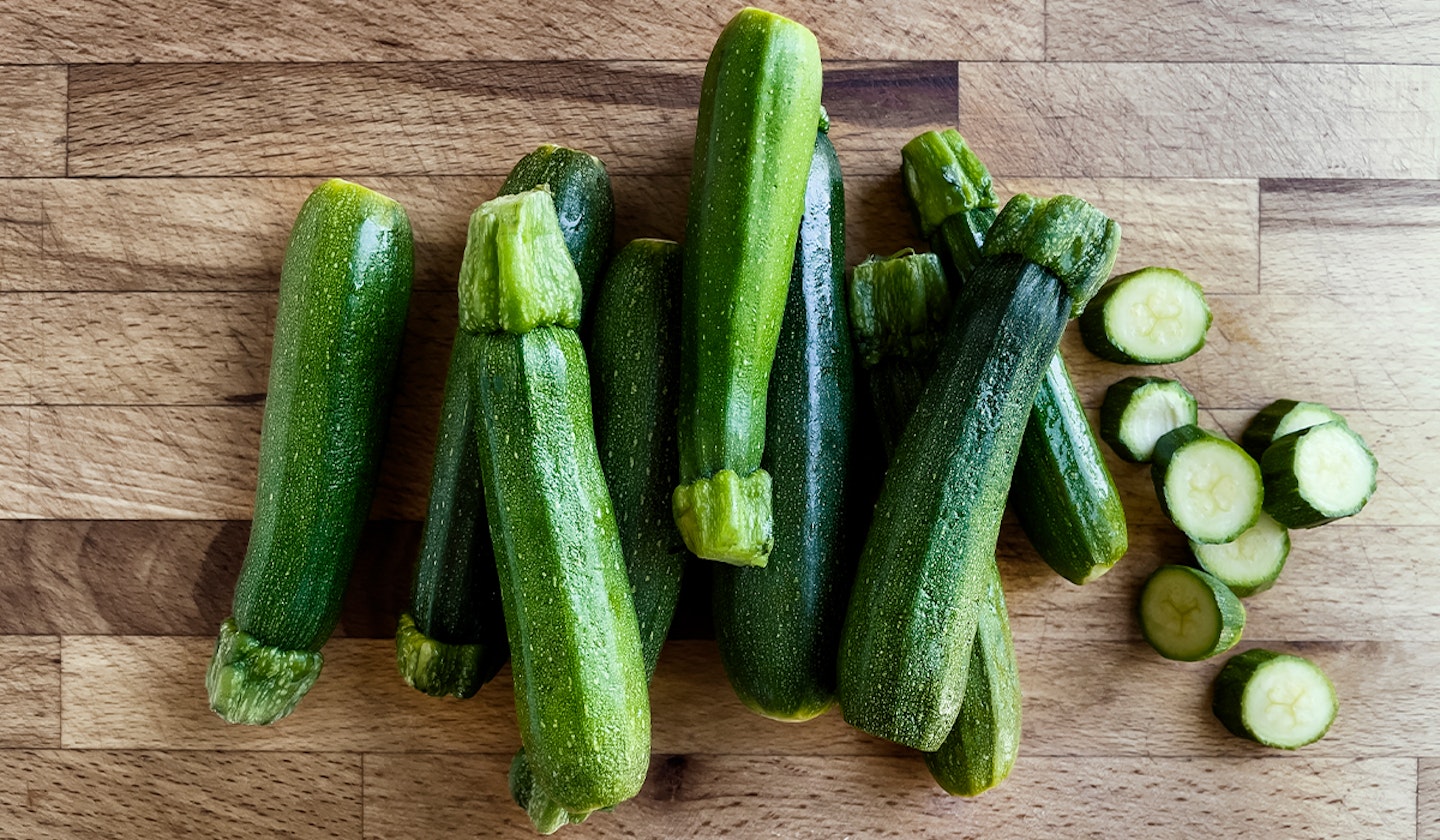
As weaning progresses and there’s more food to prepare, you won’t want to spend more time than necessary in the kitchen. Skinning and seeding tomatoes can be avoided by using a bottle or carton of unsalted sieved passata. Tomatoes provide valuable vitamin C, which helps the body absorb iron.
Recipe: To make a puree, heat 1 tbsp of oil and fry 100g of cubed courgettes until just soft (don’t brown them). Add 100g of spinach leaves and continue to cook for 3-4 minutes until the spinach has wilted, then remove from the heat. Puree the courgette and spinach mixture, then stir in the passata. If it seems too runny, you can stir in some baby rice.
Potato and broccoli

Most babies enjoy potato and it makes the texture transition from runny purees to thicker foods a little easier. As potato doesn’t puree well, use a potato ricer, or masher, mixing in milk or oil before stirring in other vegetables.
Recipe: To make a puree, boil 100g of peeled, cubed potatoes until tender and steam the 100g of broccoli and 50g of frozen peas in a separate pan. Press the cooked potato through a ricer and stir in 1 tbsp of oil. Blend the cooked peas and broccoli into a puree and then stir in the mashed potato, adding milk if necessary.
Sweet potato and parsnip
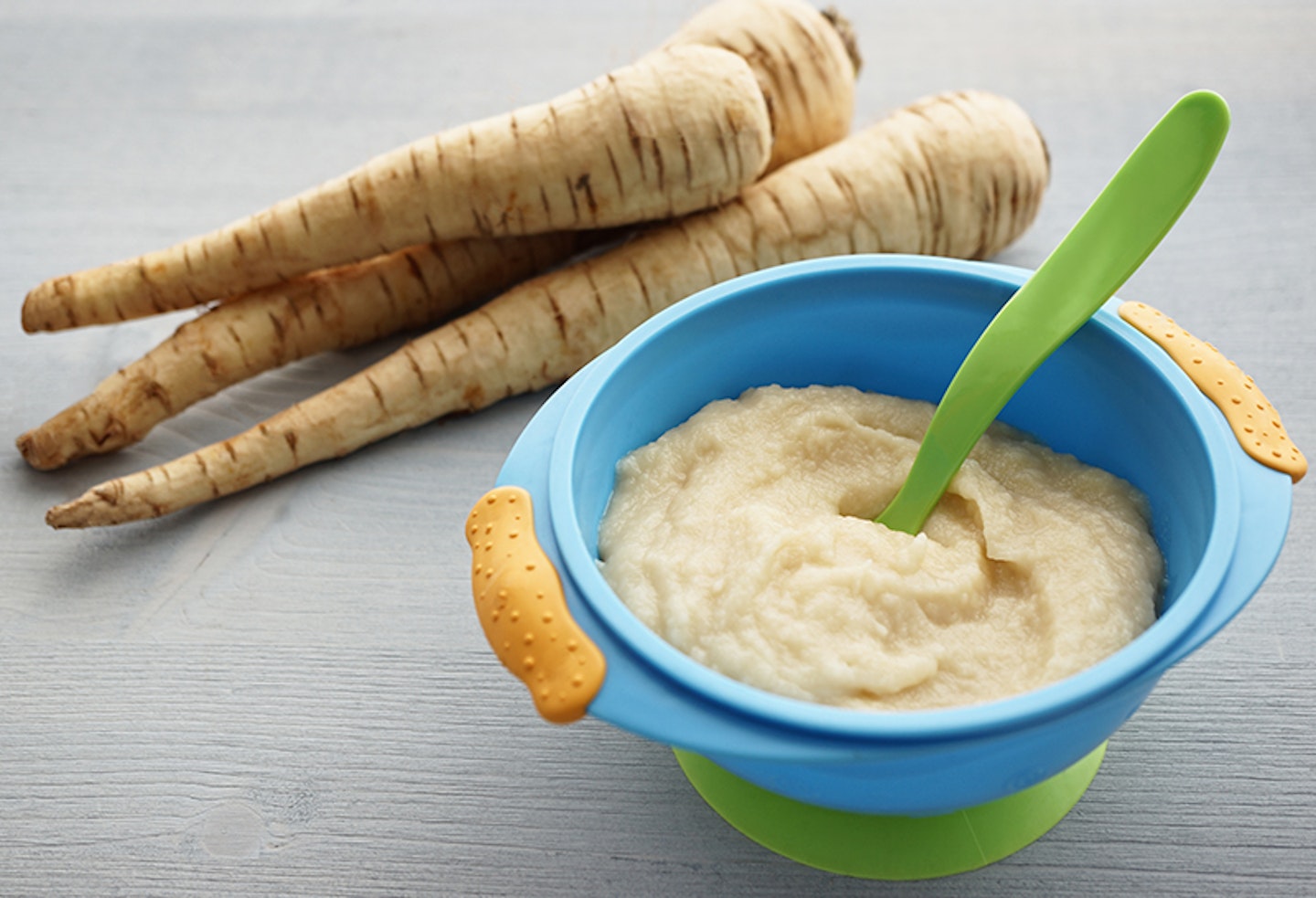
A sweet root vegetable combination, sweet potato is a fabulous source of vitamin A as well as providing essential vitamins E and C. Choose smaller parsnips as large ones tend to be a bit woody in the centre.
Recipe: To make a puree, steam 100g peeled, sliced parsnips and 200g peeled, cubed sweet potato until tender. Cool slightly then puree with 50-75ml of breast or formula milk until smooth.
Apple and plum
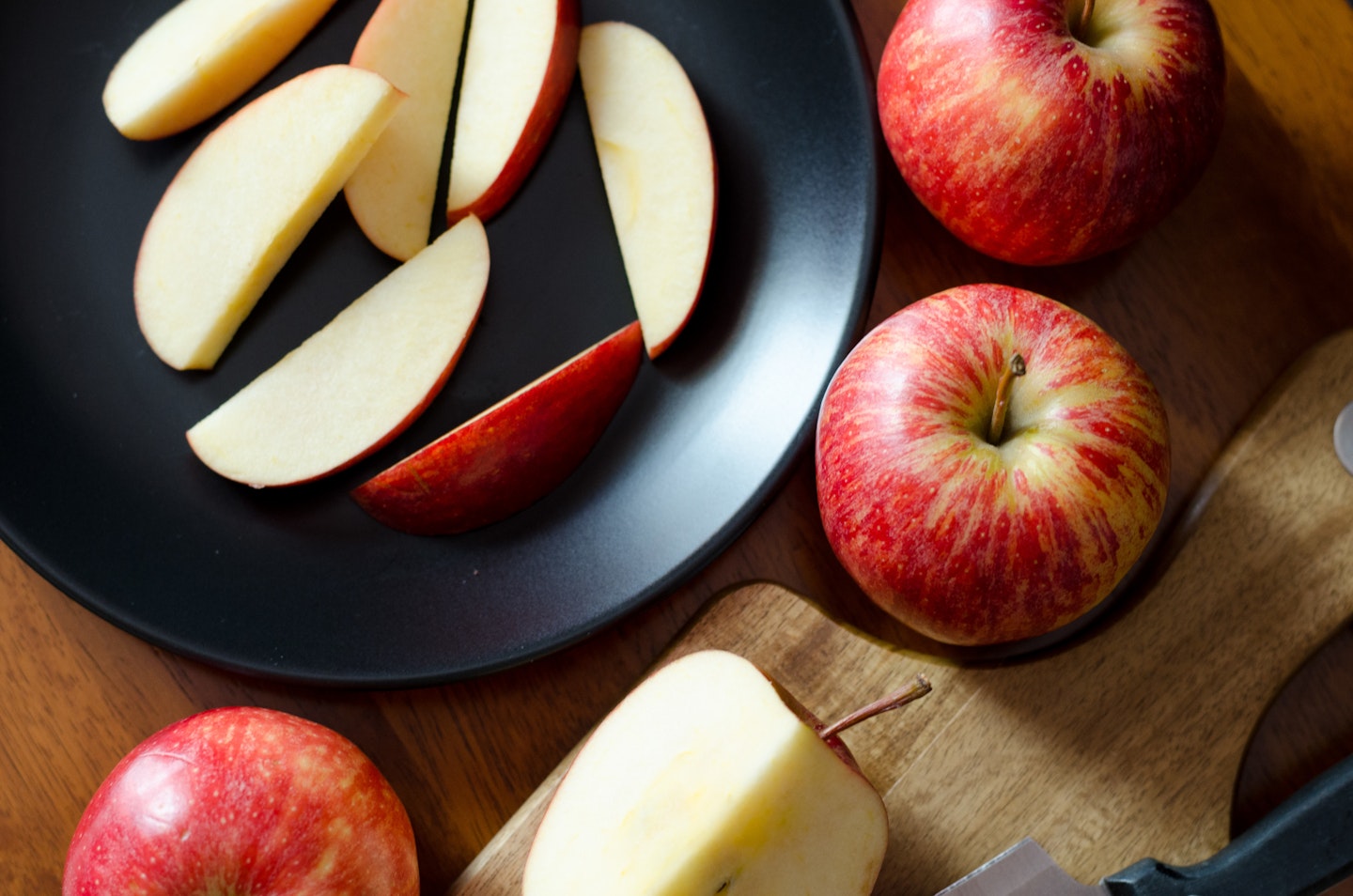
When plums are in season, this often-forgotten fruit provides useful amounts of protective substances called polyphenols. Buy ripe plums that are juicy and sweet.
Recipe: To make a puree, take 1 eating apple that’s peeled, cored and roughly chopped and 2 medium washed, stoned and quartered plums and place in a saucepan with 120ml of water and bring to the boil. Stir, reduce the heat, and cover. Allow to simmer, stirring occasionally until the fruit is tender, then puree.
Apricot and pear
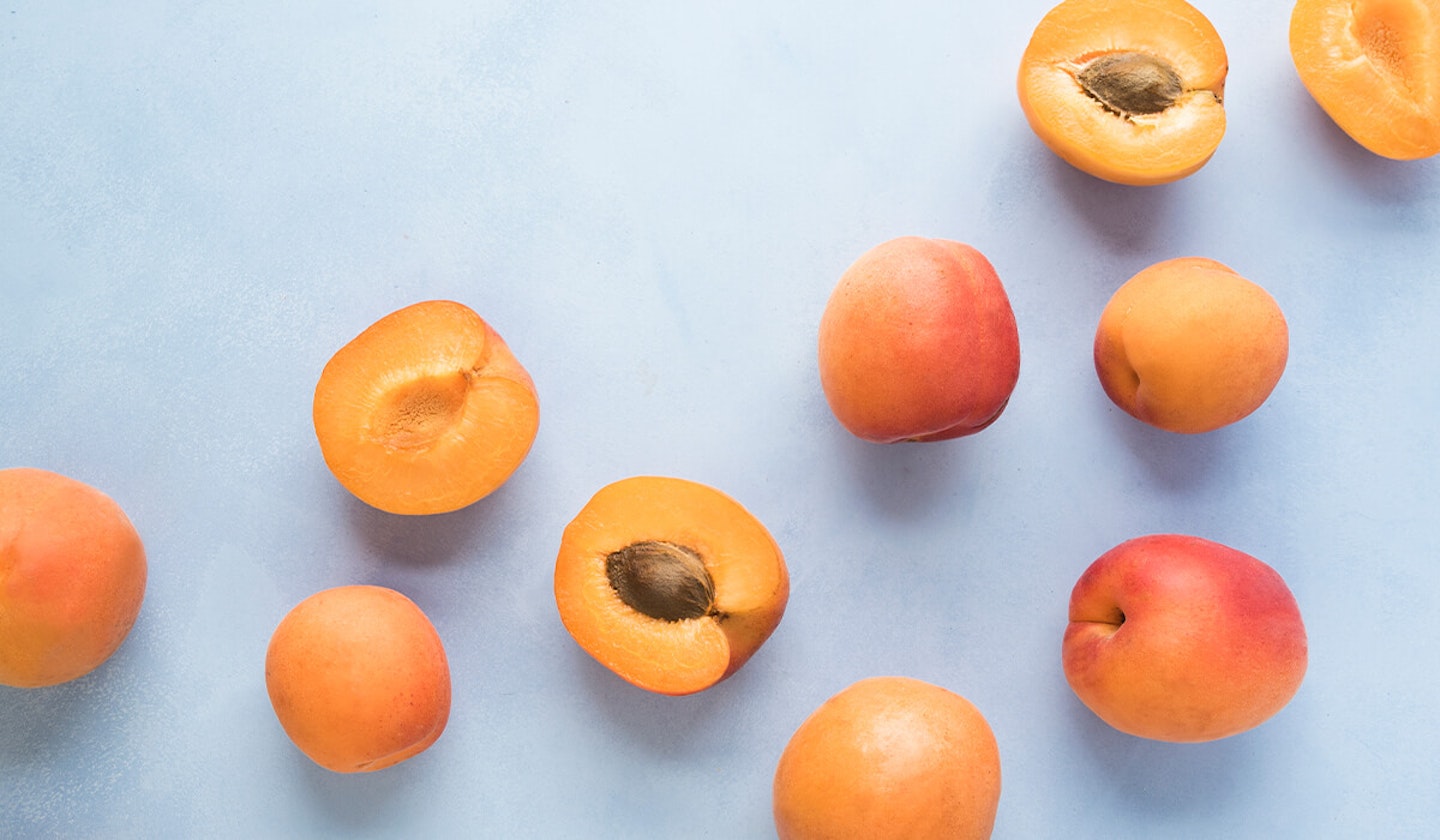
This sweet, fruity mix is a healthy treat for your baby, packed with vitamins C and E.
Recipe: To make a puree, place 100g of dried apricots in a small saucepan, cover with 250ml of water and bring to the boil before simmering until the apricots are soft. Meanwhile, steam 2 medium pears that have been peeled, cored and diced for 5-6 minutes. Combine the ingredients together with the cooking liquid then puree.
Banana and avocado
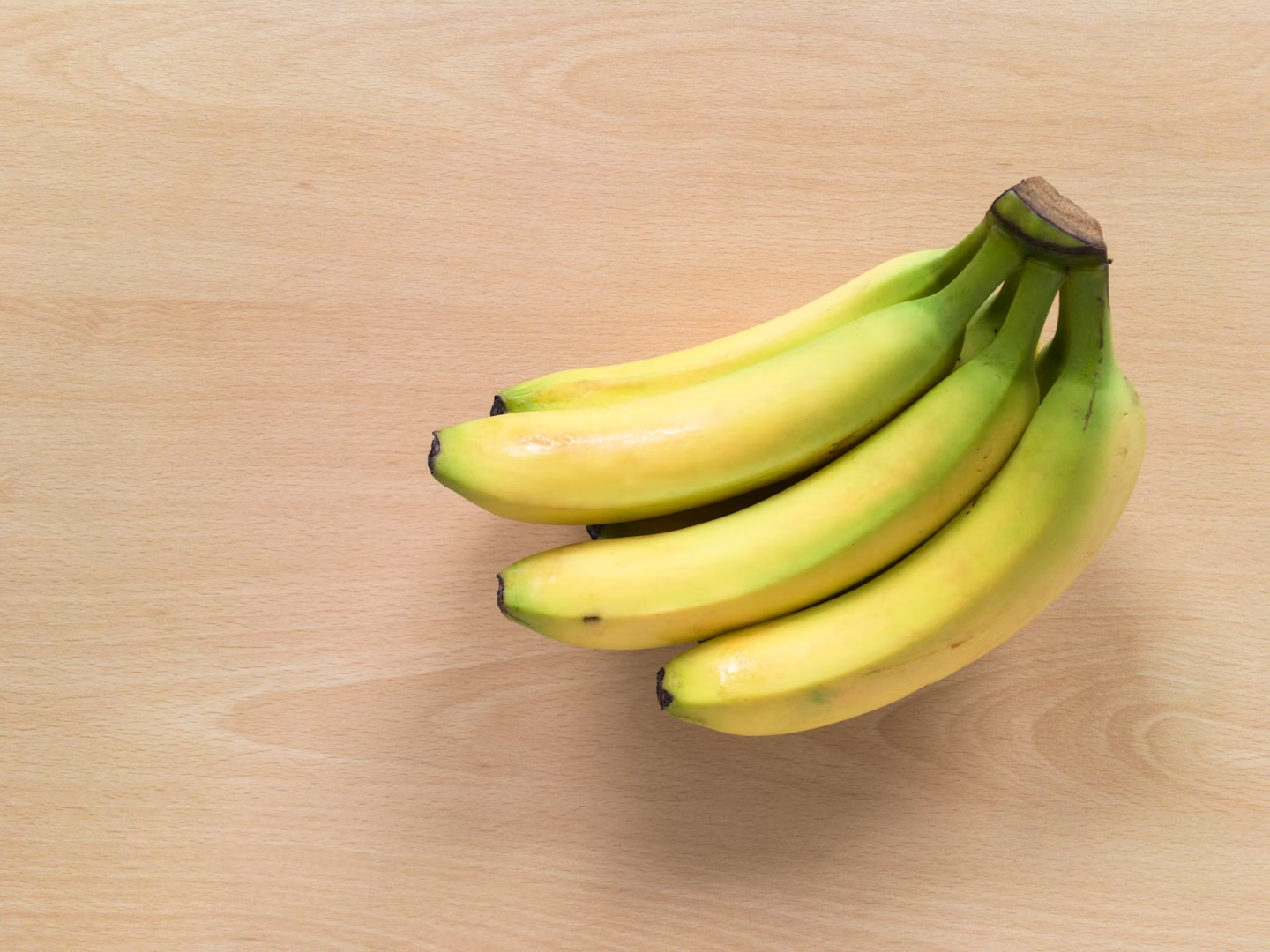
This classic combination is a favourite with babies. Rich in vitamin E and healthy monounsaturated fat, avocado, like banana, is easily portable for a meal on the move.
Recipe: To make a puree, mash ¼ ripe avocado and ¼ ripe banana until you have a smooth puree. Use immediately.
Salmon dinner
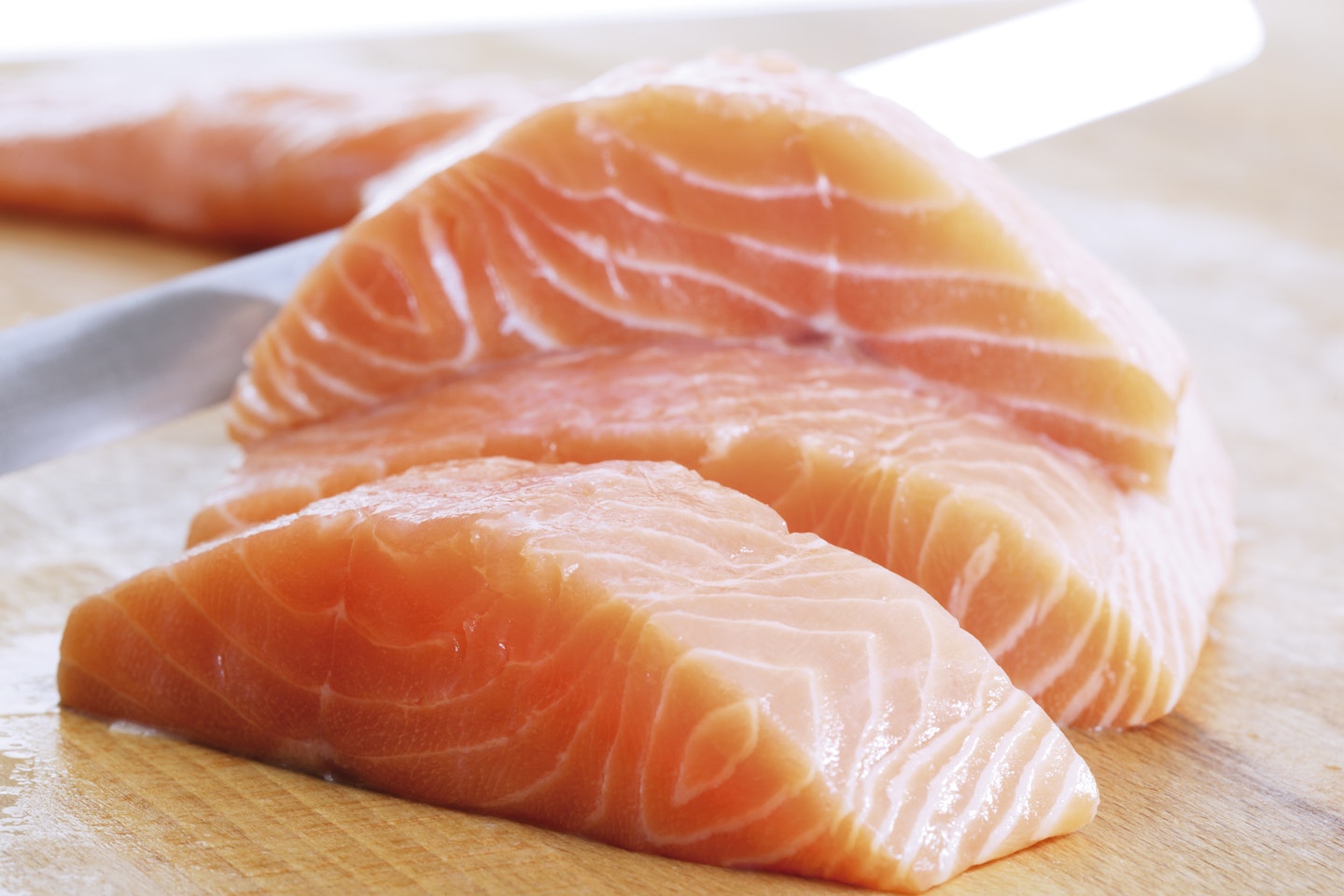
Salmon is a popular oily fish, providing essential omega-3 fatty acids for your baby’s eye and brain development. Mixed with sweet potato and carrots, this colourful meal is likely to become a firm favourite.
Recipe: To make a puree, steam 200g sweet potatoes and 100g carrots for 5 minutes. Meanwhile, run your finger over the fish to check for any bones, removing any that you find. Loosely wrap the fish in a piece of foil and place it on top of the vegetables. Continue steaming for 10-12 minutes. Remove the parcel of fish and check it’s cooked – the flesh should be opaque. Check the vegetables are tender and remove to cool slightly. Mix the salmon, sweet potato and carrots in a blender with 120ml water or milk to make a smooth puree.
Chicken dinner
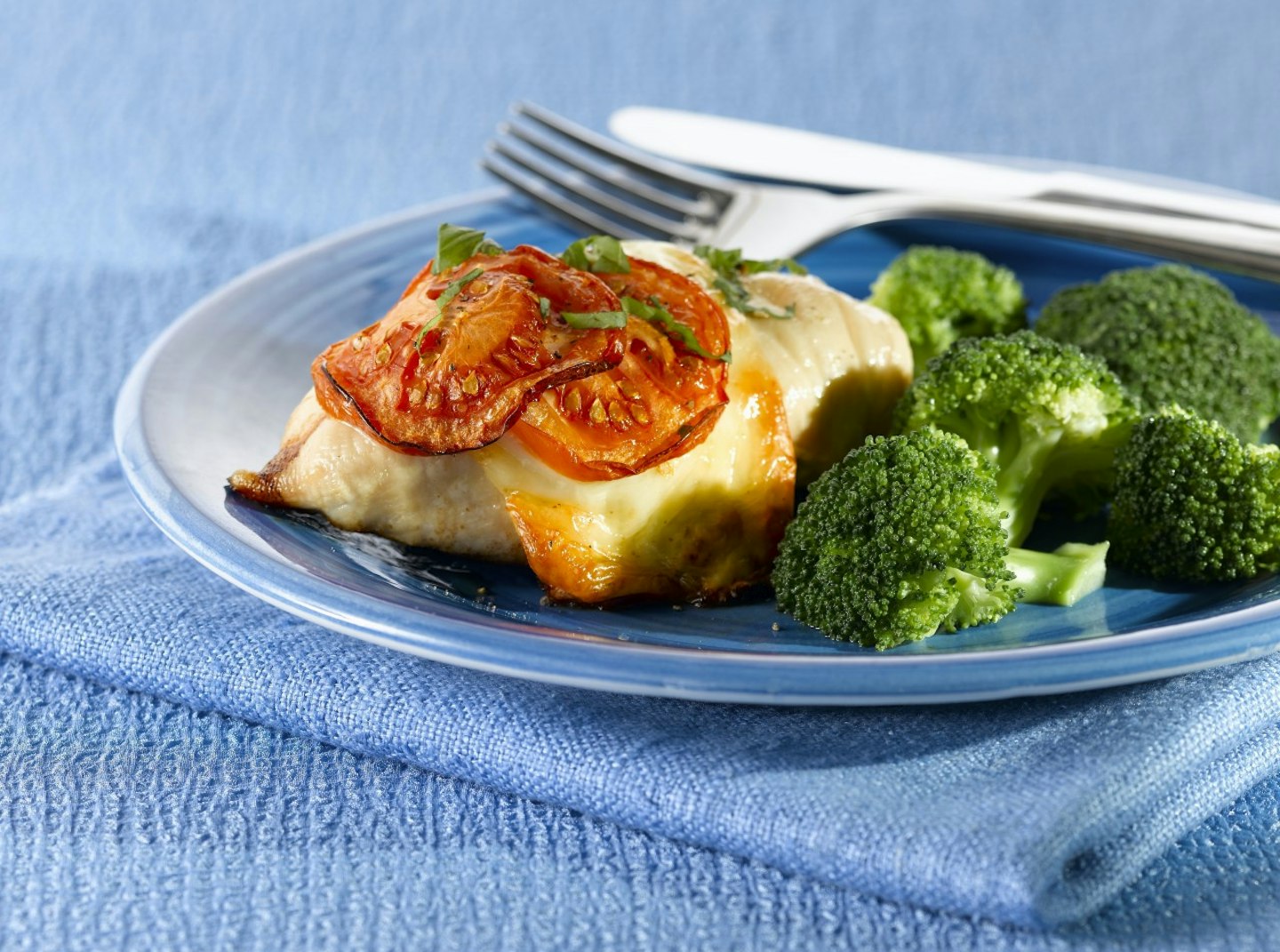
Your baby will already be familiar with broccoli; combining this with chicken provides a protein-rich meal. You can serve this dish on its own or thicken it with a little baby rice to make a more complete meal.
Recipe: To make a puree, heat 1 tbsp of vegetable oil in a small saucepan and gently fry 100g chicken mince for 2 minutes before stirring in 75ml water. Cover and simmer for 5 minutes, or until the mince is cooked through. Steam 200g broccoli florets until tender. Puree the mince with any cooking liquid and add the broccoli and blend with 90ml of water or milk until smooth.
Lamb dinner
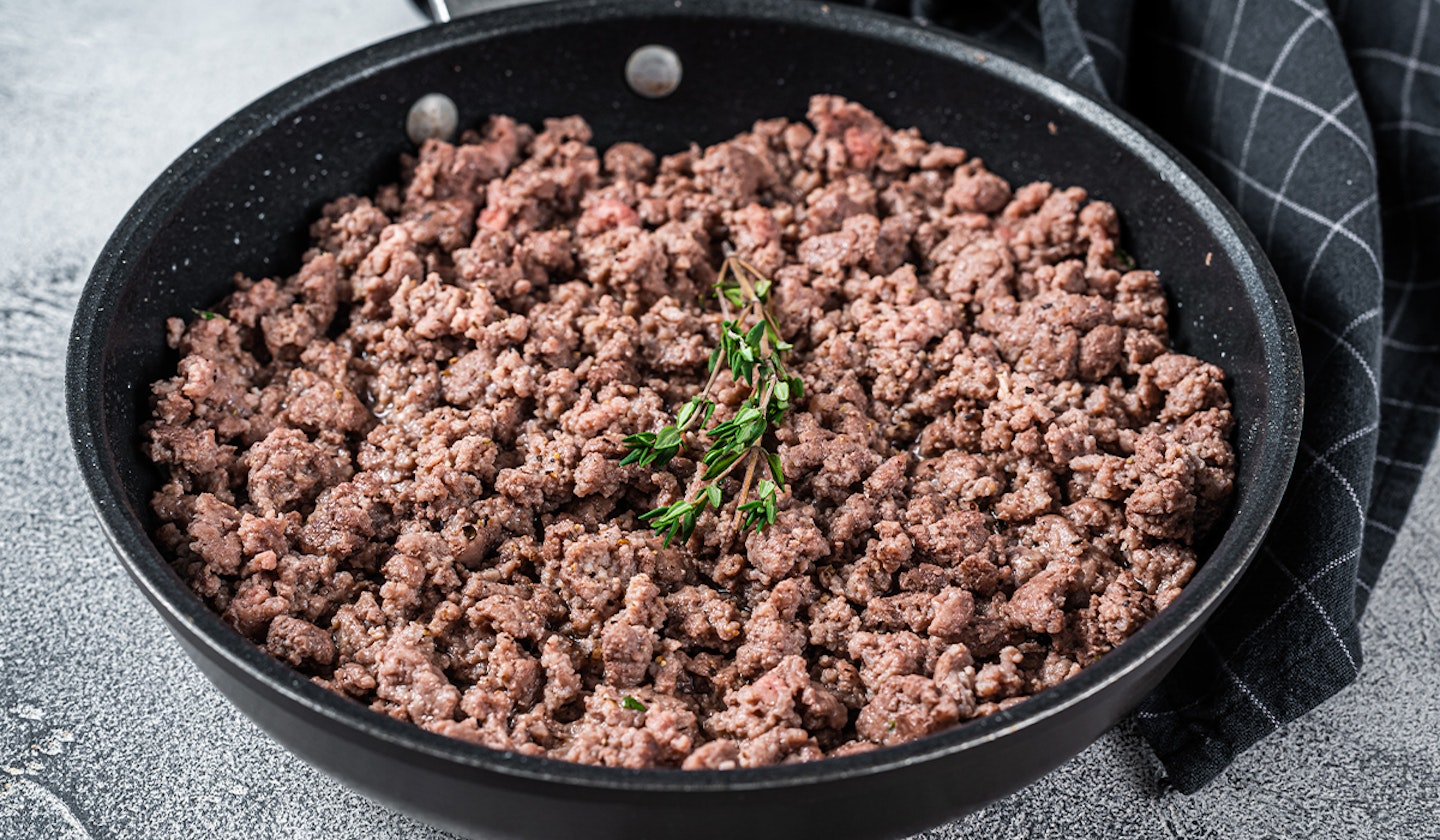
Lamb provides easily absorbed iron and zinc, which is important for your baby’s growth. The addition of tomatoes ensures there is vitamin C to help your baby absorb the iron. You can use this puree alongside mashed potato, with rice or in the later stages of weaning with couscous.
Recipe: Place 100g of minced lamb and gently fry in its own fat for 2-3 minutes, stirring constantly. Add 50g of dried apricots, 200g of passata and 100ml of water. Sprinkle in a pinch of cinnamon, stir and cover. Simmer gently for 10-15 minutes, stirring occasionally until the mince is cooked through and the apricots are tender. Cool, then puree.
About the expert
Fiona Wilcock MSc PGCE RNut is a registered nutritionist and food writer. Specialising in baby and toddler nutrition her books include Feeding Your Baby Day by Day: From First Tastes to Family Meals, The Complete Pregnancy Cookbook and Super Drinks for Pregnancy.
